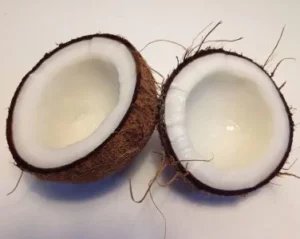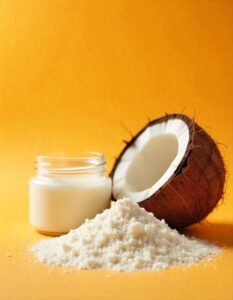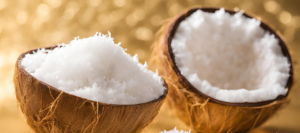Tips for Selecting and Storing Fresh Mature Coconuts

Coconuts are not just delicious and widely used in cooking, but they also offer numerous health benefits. India, known for its rich coconut resources, is a leading exporter of mature coconuts and coconut byproducts. If you are looking to buy fresh mature coconuts, it’s essential to know how to select and store them properly to maintain their freshness and quality. In this article, we will provide you with some valuable tips for choosing and storing fresh mature coconuts.
Selecting Fresh Mature Coconuts
To ensure you pick the best quality coconuts, follow these tips when selecting them:
Look for a dark brown exterior: Mature coconuts have a dark brown husk. The darker the husk, the more mature the coconut is, meaning it will have more coconut water and pulp.
Shake it: When you shake the coconut, you should be able to hear the sound of liquid sloshing inside. This indicates that the coconut is young and fresh.
Check for heavy weight: Fresh coconuts are relatively heavy compared to those that have dried out. Heavier coconuts usually contain more water.
Inspect for any cracks or mold: Avoid coconuts with cracks or mold as it indicates spoilage.
Look for the “eyes”: The coconut has three small indents called “eyes” at one end. Choose a coconut with the eyes that appear fresh and undamaged.
Smell it: The coconut should have a pleasant, sweet aroma. If it smells sour or fermented, it may have gone bad.
Storing Fresh Mature Coconuts
Once you have selected your fresh mature coconuts, proper storage is crucial to maintain their freshness and quality. Here are some essential tips for storing coconuts:
Store in a cool, dry place: Coconuts should be kept in a cool and well-ventilated area, away from direct sunlight. Avoid storing them in the refrigerator as they can absorb odors from other foods.
Do not remove the husk: The husk acts as a protective layer, preventing moisture loss and maintaining the coconut’s freshness. Only remove the husk when you are ready to use the coconut.
Avoid stacking coconuts: Stacking coconuts can bruise and damage them, leading to faster spoilage. Instead, place them in a single layer or use a crate or basket to allow air circulation.
Check for signs of spoilage: Periodically inspect the stored coconuts for any signs of mold, unusual odors, or sprouting. Remove any spoiled coconuts immediately to prevent further contamination.
Consume or process within a week: Fresh mature coconuts are best consumed within a week of purchase. If you plan to use them later, consider processing them into coconut milk, grated coconut, or coconut oil.
Conclusion
Choosing and storing fresh mature coconuts properly is crucial to ensure their freshness and quality. By following the tips mentioned above, you can confidently select and store coconuts that are perfect for your culinary needs. Remember, fresh coconuts offer a delicious taste and a plethora of health benefits, making them a popular choice worldwide.
To experience the finest quality mature coconuts and coconut byproducts, consider sourcing them from grofarm ug, a leading exporter of coconuts from India. Visit thangammanexports.com to explore their range of products and learn more about their efficient export services.
Disclaimer: The information provided in this article is for educational purposes only and should not replace professional advice. Always consult a healthcare provider or nutritionist for specific dietary requirements or concerns.



